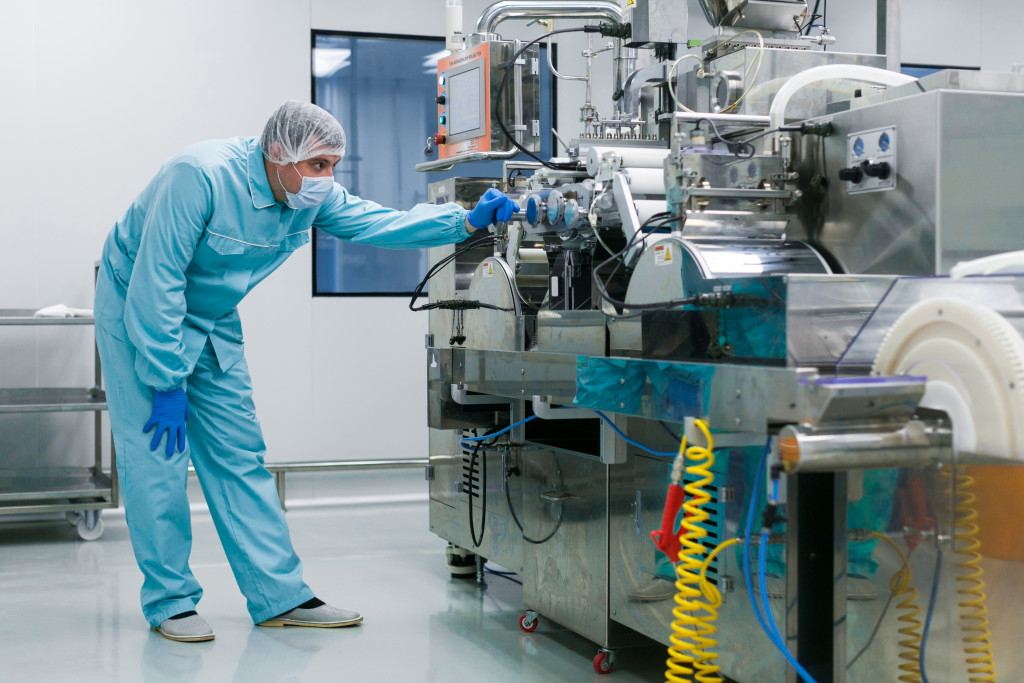The global pandemic has challenged the health and wellness industry since the COVID-19 outbreak in March last year. Health professionals and medical facilities must invest in protective personal equipment, diagnostic testing kits, and other medical devices. Whether you own a clinic, have a dental practice, run an esthetician clinic, or manage a medical facility, you must have new medical devices in response to the COVID-19 crisis.
It’s good that the US Food and Drug Administration (FDA) has outlined a list of coronavirus-related medical devices required to run a health business. Here are medical devices you might need for your health or wellness business:
1. Personal Protective Equipment (PPE)
The PPE is exactly what it is — equipment used by healthcare practitioners to protect themselves. But the Occupational Safety and Health Administration (OSHA) defines PPE as “equipment worn to reduce hazard exposure that causes an injury or illness.”
PPE has long been used in various industries, such as in construction and manufacturing. Employees wear PPE to protect themselves when working in dangerous working sites. However, the use of PPE has become all the more necessary during this pandemic. This is particularly true for the health sector, where the goal is to stop the spread of the coronavirus. Below are some PPE you might need:
- Gloves
- Safety glasses
- Safety shoes or boots
- Surgical hoods
- Gowns
- Full-body suits
2. Masks and Respirators
In healthcare settings, the FDA recommends the use of face masks, surgical masks, and respirators. These devices assist health professionals in preventing the spread of COVID-19 infection, knowing that hospital settings are at high risk.

As a health practitioner, it’s important to understand the differences between masks and respirators. Take note of the following:
- Face mask: This basically covers your nose and mouth, with or without a face shield. However, keep in mind that this isn’t designed for medical purposes due to its lower filtration efficiency level. This means that it can be worn by the public.
- Surgical mask: This is considered a medical device specifically designed for medical purposes. While it covers your nose and mouth, it has barriers to block fluids and particulate materials. It usually meets the fluid barrier protection standards.
- Respirator: It is also known as the filtering facepiece respirator (FFR), which includes the N95 and surgical N95. It is capable of filtering at least 95 percent of airborne particles. It is considered a PPE tightly secured on your face with high filtration efficiency level.
3. Ventilators
For the uninitiated, ventilators are breathing machines that help keep your lungs working. They work by pumping oxygen into your body. The air blows through a tube that goes in your mouth and down to your windpipe into your lungs.
These medical devices are essential in hospitals and medical facilities during this pandemic. One of the major symptoms of COVID-19 is difficulty in breathing. Ventilators deliver breaths to patients who are breathing insufficiently or unable to do so.
As these medical devices are needed now more than ever, the FDA works hard to increase their availability in the market. In fact, the agency has published an enforcement policy for ventilators and other medical devices.
4. In-vitro diagnostic testing kits
A crucial part of the overall equation is COVID-19 testing. If you run a clinic, you must ensure that your employees have got themselves tested. If you run a hospital or medical facility, you must provide in-vitro testing for your patients and employees. However, be sure to keep up with the guidelines set forth by the authorities such as World Health Organization (WHO) and FDA, as far as diagnostic testing is concerned.
In-vitro diagnostic tests involve getting blood or tissue samples taken from the human body. These samples are tested and studied to detect diseases or other health conditions. When it comes to COVID-19 testing, there are two types of tests — diagnostic and antibody tests.
Diagnostics tests such as molecular and antigen tests detect if you have a COVID-19 infection. These can be done through the throat or nasal swabs, or saliva collection. On the other hand, antibody tests aren’t used to diagnose an active infection. These tests look for antibodies in your immune system produced in response to the novel coronavirus.
At this point, we’ve tackled the list of medical devices required for health and wellness businesses in response to the COVID-19 crisis. These include PPEs, masks and respirators, ventilators, in-vitro diagnostic testing kits, and other medical devices. With all these in place, you’ll protect yourself and your patients or clients within your premises. Ultimately, you’ll help put a stop to the COVID-19 infection and curb the spread of the novel coronavirus.
